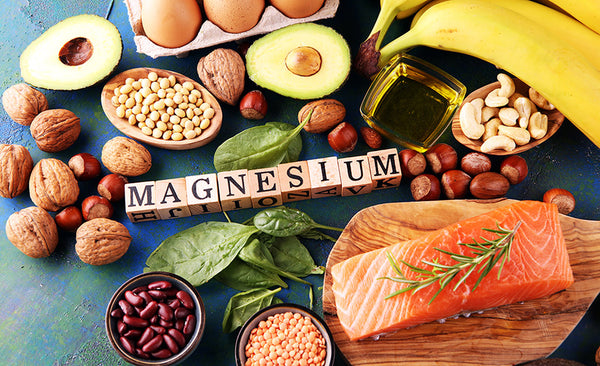Calcium 101: What You Need to Know
Facts about calcium
Calcium is essential for strong and healthy bones, teeth, nerves and muscles. It is also vital to cardiovascular and kidney functions. Your body contains nearly a kilogram of calcium, about 99% of which is in your bones and teeth.
The secret to healthy and strong bones is a diet which holds onto calcium rather than leaching it from the body. A healthy eating regimen which focuses on an alkaline and anti-inflammatory concept is what will encourage your body to hold onto the mineral. Sugar is the biggest culprit to leaching calcium from the bones, along with alcohol, soft drinks and processed foods.
Calcium is one of the major elements used in maintaining your blood's pH and consequently, the acid/alkaline balance of your entire body. Calcium works in concert with the other acid neutralisers such as sodium, potassium, iron, manganese and magnesium. Your body monitors your blood's pH and calcium levels and if either of them falls, it quickly draws on the reserves of calcium bicarbonate in your blood plasma. If your plasma reserves are insufficient, calcium is taken from wherever it is available (primarily in your bones).
How can I improve calcium absorption?
Synergistic nutrients to improve the absorption of calcium include vitamins A, C, and K, as well as arginine, lysine, silica, magnesium and boron. It is not recommended to take calcium supplements with zinc or iron as these minerals compete for absorption. Consequently, the effectiveness of calcium will decrease.
Other factors which impair calcium absorption are caffeine intake, diuretics, fatty acids, fibre oxalates, fluoride, protein, mineral oils, Mylanta (antacid), Neomycin (antibiotic), methotrexate and other pharmaceutical medications.
Minerals need to be taken in the correct form and dosage for proper utilisation within the body. In some cases when poor-quality calcium foods and supplementation are taken, this may result in calcium depositing on the outside rather than the inside matrix of the bone where it is needed for strengthening. This eventually leads to porous, weak and spongy bones which are prone to breakage, fractures and weakness or the formation of a problematic bone spur. The minerals magnesium and silica may help calcium to be reabsorbed into the bone over time, thereby reducing the occurrence of the spur.
Health benefits of calcium
Calcium is a mineral which is needed in high demands in the body for optimum health. The following are the functions of calcium within the body:
- blood clotting
- bone and tooth formation
- cell membrane permeability
- maintenance of electrolyte balance
- muscle contraction
- nerve transmission
- regulation of cell division
- hormone secretion
Calcium-rich foods
If calcium is actually the most abundant mineral in our diets, why are we all so obsessed with yielding our calcium quota from calcium supplementation? Which other foods contain the most bioavailable sources of calcium?
- dairy foods
- seafood
- green leafy vegetables
- nuts and seeds
- almonds
- egg yolks
- molasses
- sardines
- soybeans
Calcium & osteoporosis
There are myths surrounding calcium and bone density and many people believe that supplementation without addressing your diet (intake and acidity) will make a difference. Perhaps this is why there is a continued prevalence of osteoporosis in the ageing community.
It is a bit of a fallacy that calcium-poor diets cause osteoporosis.
The real problem with osteoporosis is acidity, which is essentially brought about by inflammation and a diet containing too much acid. Until people are educated about the importance of an alkaline diet to improve mineral status, this will, unfortunately, continue to be a problem. The key is to realise that a clean diet is optimal for improving calcium uptake. Go alkaline, keep active and you will prevent osteoporosis.






















